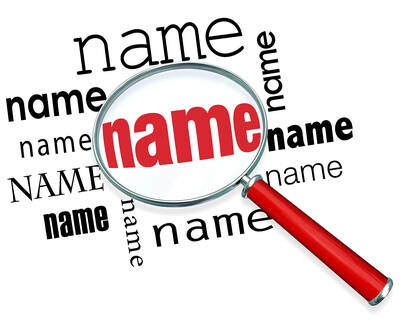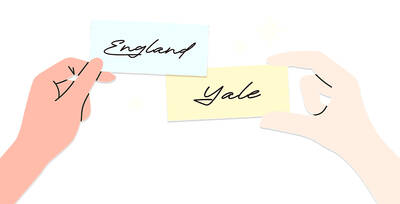According to statistics from the Ministry of Justice, 2012.7kg of the drug ketamine were confiscated last year between January and October, and China is apparently the largest exporter of the illicit substance, accounting for 1523.1kg, or 75 percent. To prevent ketamine from entering the country, the ministry has ordered the Coast Guard to strengthen its efforts to catch smugglers at sea and the Customs Authority to strengthen its controls of cargo containers, mail and checked luggage.
Taiwan and China have also established collaborative channels for catching drug traffickers, but for many years now the Chinese have been preoccupied with fighting against drug trafficking in their own borders, and have therefore not been able to actively pursue the mission of keeping illicit drugs from entering Taiwan. Speaking candidly, one high-ranking police official said that it would be nearly impossible to solve Taiwan’s drug problem simply by relying on cross-strait cooperation.
It is undeniable that the proliferation of ketamine in Taiwan is linked to China, and according to the ministry’s data on the origin of all ketamine obtained by authorities, China is indeed the main source. The country is also generally acknowledged internationally as being a major drug producer, transfer nation, and country-of-origin for many of the illegal synthetic drugs on the global market.

Photo: Chu Pei-hsiung, Liberty Times
照片:自由時報記者朱沛雄
In recent years, drug traffickers have used fishing boats, international parcels, checked luggage and shipping containers as methods for transporting ketamine from China to Taiwan. Fishing vessels have been caught on numerous occasions smuggling the drug from China, and in one case more than 300kg of the substance were confiscated, which subsequently caused the price on the black market to go from just below NT$200,000 per kilogram to between NT$600,000 and NT$700,000.
If there is a way to make a buck, there will always be someone out there willing to try. With an increasing amount of drug traffickers being caught, alternative ways to get the drug into the country are sprouting up. Some people are now going to China to learn how to make ketamine, shipping the raw materials to Taiwan, including hydroxylimine hydrochloride, solvents, as well as the equipment for making it, and then manufacturing the substance in Taiwan’s mountainous areas.
(Liberty Times, Translated by Kyle Jeffcoat)
法務部統計,去年一到十月共查獲兩千零一十二點七公斤K他命,毒害台灣最深的「進口商」就是中國,共輸台一千五百二十三點一公斤,占七成五,為杜絕K他命攻陷國門,法務部已通令查緝海上走私及海關加強搜查貨櫃、郵包、托運行李。
另一方面,我方雖然也和中國已建立合作緝毒管道,但多年下來,中方對自己境內的緝毒作業很賣力,對毒品入侵台灣斷絕管道的查緝行動卻不積極;一名高階警官不諱言,想靠兩岸合作解決毒品問題「很難啦!」
台灣K毒氾濫和中國脫不了關係,根據法務部歷年公布台灣查獲毒品來源地點,主要地點都是中國,中國被國際列為毒品生產和轉運國,更是新興合成毒品的來源國,在國際上千夫所指。
近年來,毒梟利用漁船、國際包裹、行李托運及貨櫃等方式,無所不用其極,從中國運輸K毒來台,檢調曾多次破獲透過漁船從中國走私K毒的案例,更曾一次抄獲三百多公斤K他命,讓K他命的黑市價格驚驚漲,從每公斤不到新台幣二十萬元,漲到新台幣六十、七十萬元。
賺錢的生意不怕沒人做,毒梟被境外攔截多了,索性轉念另起爐灶,遠赴中國學習製毒技巧,再進口K他命原料「鹽酸羥亞胺」、溶劑及製毒器具來台,隱藏在台灣山區的工寮製毒。
(自由時報記者侯柏青、林慶川)

A: While Taylor Swift’s new album conquers the Billboard charts, Billboard Live Taipei is set to open next month. B: Isn’t that a Japanese “live house” of the same name with the magazine? A: Yup, and the live music club’s first Taiwanese branch can accommodate 300 guests. B: Who will be performing at the club’s opening show? A: Japanese singer Mika Nakashima will play four gigs over two nights. Wanna go to the club and watch her perform up-close? A: 天后泰勒絲的新專輯再度征服《告示牌》排行榜,告示牌音樂台北則預計將在下月開幕。 B: 那不是跟《告示牌》同名的日本現場音樂餐廳嗎? A: 對,這家連鎖餐廳的台灣首店約可容納300名觀眾! B: 開幕秀的表演者是誰? A: 是日本歌手中島美嘉,想近距離看她現場演出嗎? (By Eddy Chang,

In his famous tragic play Romeo and Juliet, the English playwright William Shakespeare wrote, “What’s in a name?” As it turns out, there is quite a lot in a name, particularly a surname, which is commonly known as a person’s last name in Western societies. A surname is written after the first name, which is also referred to as a given name or, traditionally, a Christian name. A closer look at the history of surnames reveals some fascinating insights into their origins. It may come as a surprise to some that up until about 1,000 years ago, surnames were

A: US singer Taylor Swift finally released her 12th album, titled “The Life of a Showgirl,” on Oct. 3. B: The pop diva’s dominating the Billboard charts once again. A: Earlier this year, she also successfully bought back the master recordings to her first six albums. B: And the good news keeps coming, as she and NFL superstar Travis Kelce announced their engagement not long ago. A: Wow! It must be her lucky year. A: 美國歌手泰勒絲10月3日終於推出第12張專輯︰《The Life of a Showgirl》。 B: 流行天后又再次稱霸《告示牌》排行榜。 A: 今年稍早時,她還成功買回了她自己前6張專輯的錄音母帶。 B: 而喜事連連,她和美式足球巨星凱爾西近日宣布他們訂婚了。 A: 哇今年真是她的幸運年! (By Eddy Chang, Taipei Times/台北時報張迪)

Continued from yesterday(延續自昨日) https://www.taipeitimes.com/News/lang While many early surnames in England were strongly influenced by the work people did, like Carpenter or Plumber, jobs were not the only factor. Physical characteristics, personal nicknames, geographical locations and even parents’ first names also played a role. It’s not hard to imagine how the color of a person’s hair could have led to a surname like “Redhead” or “White,” while a darker complexion might have resulted in the last name “Black.” Meanwhile, someone known as a quick runner might have earned the surname “Swift,” while a clever or cunning individual could have been called “Fox”